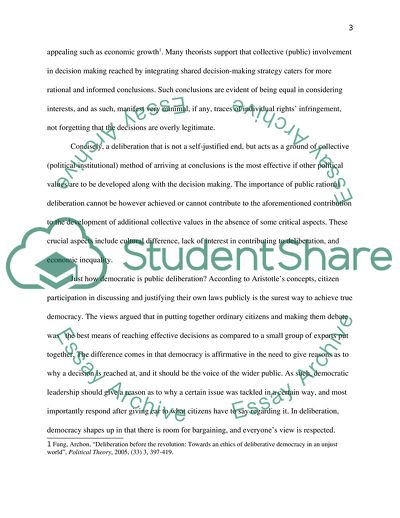Cite this document
(Does True Democracy Require a Functioning System of Rational Public Deliberation Essay Example | Topics and Well Written Essays - 2500 words, n.d.)
Does True Democracy Require a Functioning System of Rational Public Deliberation Essay Example | Topics and Well Written Essays - 2500 words. https://studentshare.org/philosophy/1817815-political-philosophy-essay-question-does-true-democracy-require-a-functioning-system-of-rational-public-deliberation
Does True Democracy Require a Functioning System of Rational Public Deliberation Essay Example | Topics and Well Written Essays - 2500 words. https://studentshare.org/philosophy/1817815-political-philosophy-essay-question-does-true-democracy-require-a-functioning-system-of-rational-public-deliberation
(Does True Democracy Require a Functioning System of Rational Public Deliberation Essay Example | Topics and Well Written Essays - 2500 Words)
Does True Democracy Require a Functioning System of Rational Public Deliberation Essay Example | Topics and Well Written Essays - 2500 Words. https://studentshare.org/philosophy/1817815-political-philosophy-essay-question-does-true-democracy-require-a-functioning-system-of-rational-public-deliberation.
Does True Democracy Require a Functioning System of Rational Public Deliberation Essay Example | Topics and Well Written Essays - 2500 Words. https://studentshare.org/philosophy/1817815-political-philosophy-essay-question-does-true-democracy-require-a-functioning-system-of-rational-public-deliberation.
“Does True Democracy Require a Functioning System of Rational Public Deliberation Essay Example | Topics and Well Written Essays - 2500 Words”. https://studentshare.org/philosophy/1817815-political-philosophy-essay-question-does-true-democracy-require-a-functioning-system-of-rational-public-deliberation.


